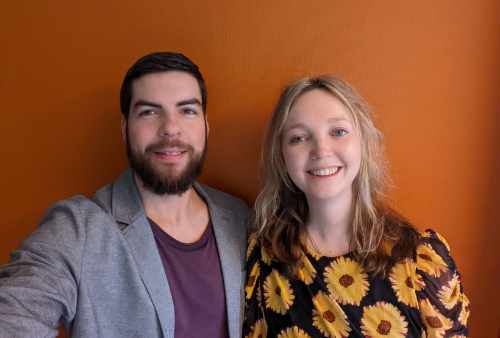Psychedelic therapy sessions can be transformative experiences, offering individuals the opportunity to explore their inner worlds and gain profound insights. Understanding what to expect and how to prepare for these sessions is crucial for maximizing the benefits. This article will delve into the key aspects of the psychedelic therapy session, from establishing trust with the therapist to integrating the experience into daily life.
Key Takeaways
- Establishing trust and rapport with the therapist is essential for a successful psychedelic therapy session.
- Setting clear intentions before the session can guide the experience and enhance its therapeutic value.
- Creating a safe and supportive environment is vital for ensuring a positive and transformative psychedelic journey.
- Preparing mentally and emotionally beforehand can help individuals navigate the psychedelic experience with greater ease and openness.
- Reflecting on the experience and integrating insights into daily life are key steps in maximizing the long-term benefits of psychedelic therapy.
Understanding the Role of the Therapist
Establishing Trust and Rapport
The foundation of an effective psychedelic therapy session lies in the relationship between the therapist and the client. Establishing trust and rapport is crucial for creating an atmosphere where the client feels comfortable and safe to explore their psyche. This process often involves:
- Open and non-judgmental communication
- Active listening and empathy from the therapist
- Mutual agreement on confidentiality and boundaries
It is essential for the therapist to be attuned to the client’s needs and concerns, fostering a sense of mutual respect and understanding.
Building this connection can take time and may occur over several preparatory meetings. The therapist’s role is to be a guide and a supportive presence, ensuring that the client feels heard and validated throughout the therapeutic journey.
Setting Intentions for the Session
Before embarking on the psychedelic journey, setting clear intentions is a pivotal step. It’s about aligning your mind and heart with a purpose that will guide your experience. Intentions act as a compass, offering direction and meaning to the unfolding narrative of the session.
- Reflect on personal goals or areas of self-improvement.
- Consider any specific insights or healing you wish to seek.
- Be open to the experience without rigid expectations.
Setting an intention is not about predetermining the outcome, but rather about entering the experience with a mindset conducive to personal growth and healing.
The therapist will help you articulate these intentions, ensuring they are both meaningful and achievable. This process not only prepares you for the journey ahead but also helps to cultivate a therapeutic alliance between you and the therapist, which is essential for a successful outcome.
Creating a Safe and Supportive Environment
A safe and supportive environment is fundamental to a successful psychedelic therapy session. The setting influences the patient’s comfort level, openness, and overall experience. Therapists often personalize the space to promote relaxation and a sense of security, which can include comfortable seating, soft lighting, and a quiet atmosphere.
- Ensure the room is private and free from interruptions.
- Use calming decorations and a comfortable temperature.
- Have essentials like water, tissues, and blankets readily available.
The therapist’s role extends beyond the physical space, encompassing the emotional climate as well. They are there to provide reassurance and guidance, helping the patient navigate the psychedelic experience with a grounded presence.
Navigating the Psychedelic Experience
Preparing Mentally and Emotionally
Preparing mentally and emotionally for a psychedelic therapy session is crucial for a beneficial experience. Self-reflection is key; it allows you to enter the session with clarity about your intentions and openness to the journey ahead.
- Take time to meditate or engage in quiet contemplation.
- Acknowledge any fears or anxieties and consider discussing them with your therapist.
- Ensure you have cleared your schedule to avoid any post-session stress.
It’s important to approach the session with a mindset of acceptance and surrender, as this will enable you to fully engage with the therapeutic process.
Remember, the goal is not to control the experience but to let it unfold naturally, providing an opportunity for growth and healing.
Exploring Inner Realms and Insights
During a psychedelic therapy session, the exploration of inner realms and insights is a pivotal phase. This is where individuals often encounter profound personal revelations and symbolic imagery that can lead to transformative psychological shifts. The experience is highly individualized, with each person’s journey reflecting their own psyche and life history.
- Reflect on personal narratives
- Confront subconscious symbols
- Embrace emotional revelations
It’s essential to approach this exploration with an open mind and a willingness to engage with whatever arises, even if it’s unexpected or challenging.
Participants are encouraged to let go of preconceived notions and allow the psychedelic substance to guide them through their subconscious. This can result in a range of experiences, from revisiting past memories to encountering archetypal figures. The therapist’s role is to facilitate this process, offering support and grounding as needed.
Managing Challenging or Overwhelming Moments
During a psychedelic therapy session, participants may encounter moments that are emotionally intense or psychologically challenging. It’s crucial to remember that these moments are often part of the healing process. Navigating these experiences with the guidance of a therapist can lead to profound personal growth and insight.
- Stay grounded by focusing on your breath or a fixed point in the room.
- Communicate openly with your therapist about what you’re feeling.
- Allow yourself to experience the emotions without judgment.
Remember that the therapist is there to support you through difficult passages, offering techniques and reassurance to help you regain a sense of control and safety.
After the session, it’s important to take time to process these moments. Reflecting on them can help you understand their meaning and integrate the experience into your broader journey of self-discovery and healing.
Integration and Post-Session Reflection
Reflecting on the Experience
After the psychedelic therapy session, taking the time to reflect on the experience is crucial. This period of reflection allows for the consolidation of insights and emotions that surfaced during the journey. Reflection can transform profound experiences into actionable wisdom, guiding personal growth and healing.
- Consider journaling your thoughts and feelings.
- Discuss your experience with your therapist or a trusted individual.
- Allow yourself time to process without rushing into normal activities.
Reflection is not just about recalling events; it’s about understanding the deeper meaning behind them and recognizing patterns that may influence your behavior and beliefs.
It’s important to approach this process with patience and self-compassion, as the insights gained may challenge existing perspectives or open up new avenues for exploration. The act of reflecting is a step towards integrating the psychedelic experience into your everyday life, making it a transformative tool for long-term well-being.
Incorporating Insights into Daily Life
The journey through a psychedelic therapy session can yield profound insights and revelations that have the potential to enrich one’s daily life. Integrating these experiences is crucial for lasting change and personal growth.
- Reflect on the insights regularly, perhaps through journaling or meditation.
- Set practical goals that align with your newfound perspectives.
- Discuss your experiences with trusted individuals who can offer support.
The true measure of psychedelic therapy’s success is how well the insights are woven into the fabric of everyday existence. It’s about taking the abstract and making it concrete through actions and decisions that resonate with the core lessons learned.
Remember, integration is an ongoing process that doesn’t end with the session. It requires patience, commitment, and sometimes, the courage to make significant life changes.
Seeking Support and Community Connections
After a psychedelic therapy session, it’s crucial to not navigate the aftermath alone. Finding a community or support group can provide a sense of belonging and shared understanding that is invaluable during the integration process.
- Engage with online forums or local groups that focus on psychedelic experiences and integration.
- Consider joining workshops or meetups that offer structured group discussions.
- Seek out a therapist or counselor who specializes in post-psychedelic integration for one-on-one support.
The journey doesn’t end when the session does; it’s an ongoing process that benefits from the collective wisdom of a supportive community.
Remember, each person’s experience is unique, and what works for one may not work for another. It’s important to find a support system that resonates with your personal journey and contributes positively to your growth and well-being.
Conclusion
In conclusion, understanding what to expect and how to prepare for a psychedelic therapy session can help individuals approach the experience with a sense of readiness and openness. By demystifying the process, individuals can feel more empowered to engage in this therapeutic modality and potentially benefit from its profound effects. It is important to approach psychedelic therapy with respect, caution, and guidance from trained professionals to ensure a safe and transformative journey towards healing and self-discovery.
Frequently Asked Questions
What is the role of the therapist in a psychedelic therapy session?
The therapist plays a crucial role in establishing trust, setting intentions, and creating a safe environment for the session.
How should one prepare mentally and emotionally for a psychedelic experience?
Preparing mentally and emotionally involves self-reflection, intention setting, and being open to exploring inner realms.
What can one expect to encounter during a psychedelic experience?
Participants may experience profound insights, visual and sensory alterations, and emotional release during the session.
How can one manage challenging or overwhelming moments during a psychedelic session?
Techniques such as deep breathing, grounding exercises, and guidance from the therapist can help navigate difficult moments.
Why is post-session integration important in psychedelic therapy?
Integration allows individuals to reflect on their experience, incorporate insights into daily life, and seek support for continued growth.
Are there community resources available for individuals interested in psychedelic therapy?
Yes, there are communities, support groups, and online platforms that offer resources and connections for those exploring psychedelic therapy.

